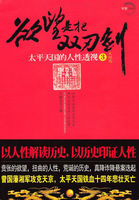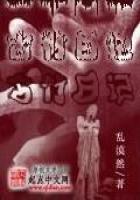'You are right,' I said, remembering a certain conversa-tion I had overheard. 'The manager thinks you ought to be hanged.' He showed a concern at this intelligence which amused me at first. 'I had better get out of the way quietly,' he said, earnestly. 'I can do no more for Kurtz now, and they would soon find some excuse.
What's to stop them? There's a military post three hun-dred miles from here.' 'Well, upon my word,' said I, 'perhaps you had better go if you have any friends amongst the savages near by.' 'Plenty,' he said. 'They are simple people--and I want nothing, you know.'
He stood biting his lips, then: 'I don't want any harm to happen to these whites here, but of course I was think-ing of Mr. Kurtz's reputation--but you are a brother seaman and--' 'All right,' said I, after a time.
'Mr. Kurtz's reputation is safe with me.' I did not know how truly I spoke.
"He informed me, lowering his voice, that it was Kurtz who had ordered the attack to be made on the steamer. 'He hated sometimes the idea of being taken away--and then again. . . . But I don't understand these matters. I am a simple man. He thought it would scare you away--that you would give it up, thinking him dead. I could not stop him. Oh, I had an awful time of it this last month.' 'Very well,' I said. 'He is all right now.' 'Ye-e-es,' he muttered, not very con-vinced apparently. 'Thanks,' said I; 'I shall keep my eyes open.' 'But quiet--eh?' he urged, anxiously. 'It would be awful for his reputation if anybody here--'
I promised a complete discretion with great gravity. 'Ihave a canoe and three black fellows waiting not very far. I am off. Could you give me a few Martini-Henry cartridges?' I could, and did, with proper secrecy. He helped himself, with a wink at me, to a handful of my tobacco. 'Between sailors--you know--good English tobacco.' At the door of the pilot-house he turned round --'I say, haven't you a pair of shoes you could spare?'
He raised one leg. 'Look.' The soles were tied with knotted strings sandal-wise under his bare feet. I rooted out an old pair, at which he looked with admiration be-fore tucking it under his left arm. One of his pockets (bright red) was bulging with cartridges, from the other (dark blue) peeped 'Towson's Inquiry,' &c., &c.
He seemed to think himself excellently well equipped for a renewed encounter with the wilderness. 'Ah! I'll never, never meet such a man again. You ought to have heard him recite poetry--his own too it was, he told me. Poetry!' He rolled his eyes at the recollection of these delights. 'Oh, he enlarged my mind!' 'Good-by,' said I. He shook hands and vanished in the night.
Sometimes I ask myself whether I had ever really seen him--whether it was possible to meet such a phenome-non! . . .
"When I woke up shortly after midnight his warning came to my mind with its hint of danger that seemed, in the starred darkness, real enough to make me get up for the purpose of having a look round. On the hill a big fire burned, illuminating fitfully a crooked corner of the station-house. One of the agents with a picket of a few of our blacks, armed for the purpose, was keeping guard over the ivory; but deep within the forest, red gleams that wavered, that seemed to sink and rise from the ground amongst confused columnar shapes of intense blackness, showed the exact position of the camp where Mr. Kurtz's adorers were keeping their un-easy vigil. The monotonous beating of a big drum filled the air with muffled shocks and a lingering vibration. Asteady droning sound of many men chanting each to himself some weird incantation came out from the black, flat wall of the woods as the humming of bees comes out of a hive, and had a strange narcotic effect upon my half-awake senses. I believe I dozed off leaning over the rail, till an abrupt burst of yells, an over-whelming outbreak of a pent-up and mysterious frenzy, woke me up in a bewildered wonder. It was cut short all at once, and the low droning went on with an effect of audible and soothing silence. I glanced casually into the little cabin. A light was burning within, but Mr.
Kurtz was not there.
"I think I would have raised an outcry if I had be-lieved my eyes. But I didn't believe them at first--the thing seemed so impossible. The fact is I was completely unnerved by a sheer blank fright, pure abstract terror, unconnected with any distinct shape of physical danger.
What made this emotion so overpowering was--how shall I define it?--the moral shock I received, as if something altogether monstrous, intolerable to thought and odious to the soul, had been thrust upon me unexpectedly. This lasted of course the merest fraction of a second, and then the usual sense of commonplace, deadly danger, the possibility of a sudden onslaught and massacre, or some-thing of the kind, which I saw impending, was positively welcome and composing. It pacified me, in fact, so much, that I did not raise an alarm.
"There was an agent buttoned up inside an ulster and sleeping on a chair on deck within three feet of e. The yells had not awakened him; he snored very slightly; I left him to his slumbers and leaped ashore.
I did not betray Mr. Kurtz--it was ordered I should never betray him--it was written I should be loyal to the nightmare of my choice. I was anxious to deal with this shadow by myself alone,--and to this day Idon't know why I was so jealous of sharing with any-one the peculiar blackness of that experience.
"As soon as I got on the bank I saw a trail--a broad trail through the grass. I remember the exultation with which I said to myself, 'He can't walk--he is crawling on all-fours--I've got him.' The grass was wet with dew. I strode rapidly with clenched fists. I fancy Ihad some vague notion of falling upon him and giving him a drubbing. I don't know. I had some imbecile thoughts. The knitting old woman with the cat ob-truded herself upon my memory as a most improper person to be sitting at the other end of such an affair.















